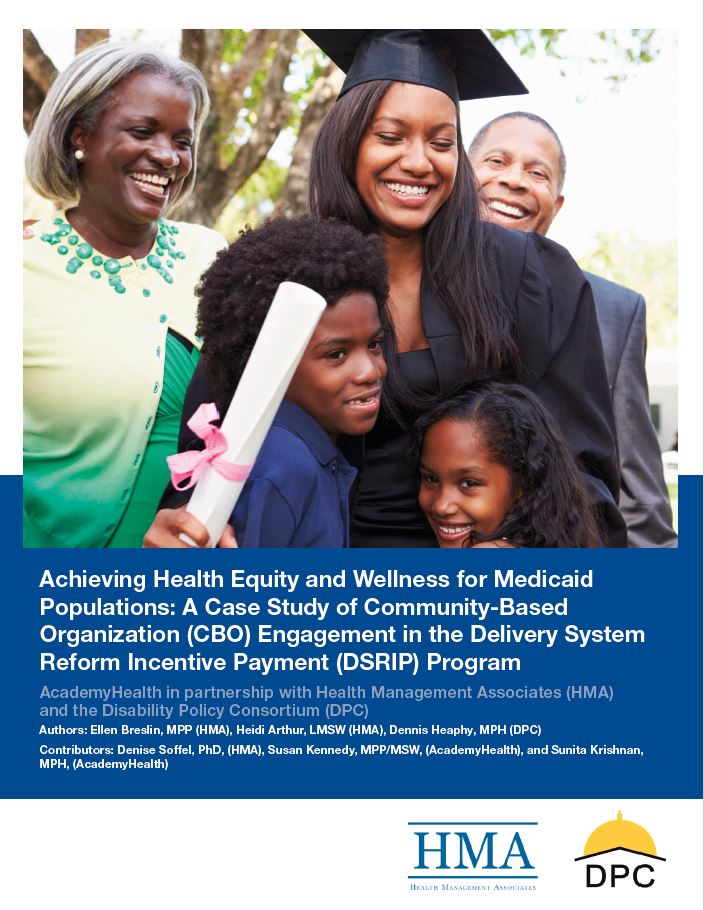
Achieving Health Equity and Wellness for Medicaid Populations: A Case Study of Community Based Organization (CBO) Engagement in the Delivery System Reform Incentive Payment (DSRIP) Program
This issue brief provides five key lessons from New York City CBOs and reactions to those lessons from CBOs in Massachusetts.
It is widely recognized that social determinants of health (SDOH) have a significant impact on mortality and morbidity. CBOs can play a significant role in addressing SDOH factors that drive health disparities and poor health outcomes for many reasons, including: (1) CBOs are directly connected to the populations they serve; and, (2) CBOs commonly address an array of overlapping clinical and social service needs. CBOs, however, face many challenges in creating meaningful partnerships with health care organizations.
This issue brief focuses on the challenges that CBOs face in participating in Medicaid payment and care delivery system reform in New York and Massachusetts. The brief provides five key lessons from New York City CBOs and reactions to those lessons from CBOs in Massachusetts. Together, these perspectives provide a compelling case for the elevation of CBOs role in achieving health equity and wellness through Medicaid reform and calls the development of a National Blueprint for Advancing Health Equity Through Community-Based Organizations to facilitate greater cross-sector collaboration between CBOs and HCOs.